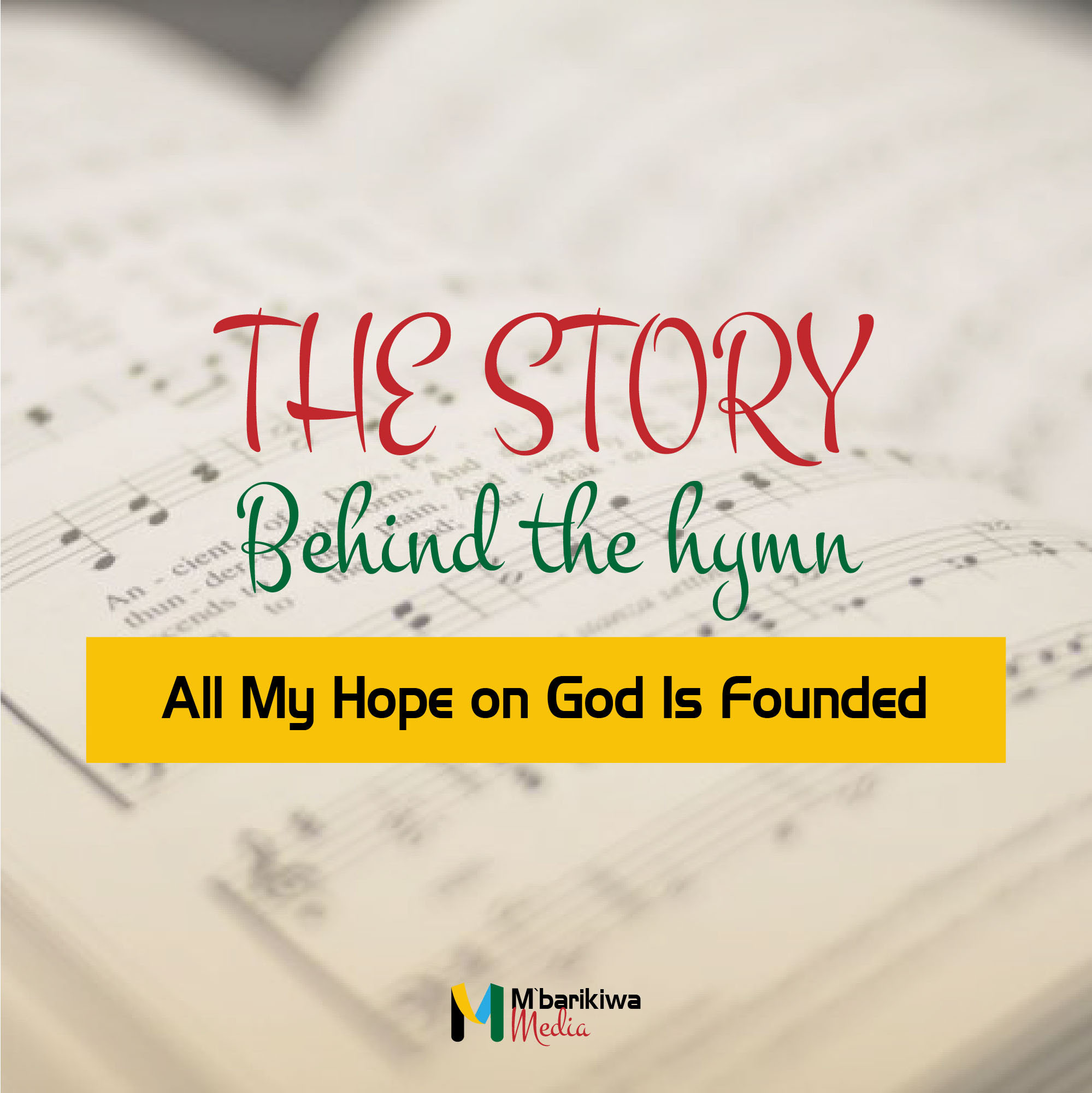The original words “Meine Hoffnung stehet feste” of the hymn All My Hope on God Is Founded, were written in around 1680 by Joachim Neander.

Joachim Neander
Joachim Neander wrote this hymn and sixty more. He was a member of the German Reformed Church, and was strongly influenced by Philip Spener, the founder of Pietism. A rambunctious sort in his youth, he became involved in ministry in his 20s, but died at age 30 of tuberculosis. However, his hymns, particularly this one and the more famous “Praise to the Lord, the Almighty, the King of Creation” have inspired Christian worship for more than three centuries (Neander died in 1680).
An interesting side note: Neander’s family name had originally been Neumann, which means “New Man” in German. However, Joachim’s grandfather changed his name to the Greek form, Neander, and that became the family name. Joachim Neander enjoyed the outdoors, and used to spend much time in the lovely Dussel River Valley. After his death, grateful people honored Neander by naming the valley after him. In German, “thal” means valley, so the name of the valley became Neanderthal. Nearly two centuries later in 1856, an ancient skeleton was discovered in that valley. It became known as the Neanderthal Man because of the name of the valley in which the skeleton was discovered. So the Neanderthal Man was named after the valley that was earlier named after the writer of this hymn.

Robert Bridges
In 1899 these were translated into English by Robert Bridges, who would later become British Poet Laureate. He was, at the time, living in the Berkshire village of Yattendon, where he was choir master for the parish church of St Peter and St Paul. Disappointed with the range of hymns available, he made his own collection which he entitled the Yattendon Hymnal and included this hymn, number 69.
The original tune was a German chorale melody named Meine Hoffnung (from its German text). This tune was also used as the principal choice for the Methodist Hymns and Psalms book of 1983.
This hymn calls us to trust God rather than “mortal pride” or “earthly glory.” It reminds us that “sword and crown betray our trust.” It calls us to praise the one whose “great goodness e’er endureth.”
In 1930, Dr Thomas Percival (TP) Fielden, director of music at Charterhouse School, sent Bridges’ text to a friend, composer Herbert Howells, requesting Howells compose a new setting of the hymn for use at the school. Howells received the request by post one morning, in the middle of breakfast. Almost immediately a tune suggested itself to him and the hymn was apparently composed on the spot (in the composer’s words) “while I was chewing bacon and sausage.” The completed setting, titled A Hymn Tune for Charterhouse, was sent to Fielden, and became a regularly used hymn at the school.
Fielden was one of the editors of The Clarendon Hymn Book, and when that book was published in 1936 he chose to include the hymn. Howells’ son Michael had died in childhood the previous year, and in tribute Howells rechristened the tune Michael. The hymn’s popularity increased in consequence as it became more widely known, though its use remained largely confined to public (independent) school use in Britain for the next thirty years or so.
Its popularity began to spread in 1969 when it was included in the “100 Hymns for Today” supplement of the Hymns Ancient and Modern, one of the standard Church of England hymnbooks of its day. The Methodist church included it (albeit as second choice) in the 1983 Hymns and Psalms, and it was the main choice in the 1986 New English Hymnal. It has subsequently appeared in many hymnbooks across the English-speaking world.
British musician and hymn tune writer John Wilson requested that Green retranslate this hymn from the original German. Green originally wondered what was wrong with Robert Bridges’ 1899 version, “All My Hope on God is Founded,” but then discovered that it was not a true translation, but only inspired by the original text. Green noted that the “original text is not dealing with the theme of salvation but with the generous provision God makes for all his creation.”
References

